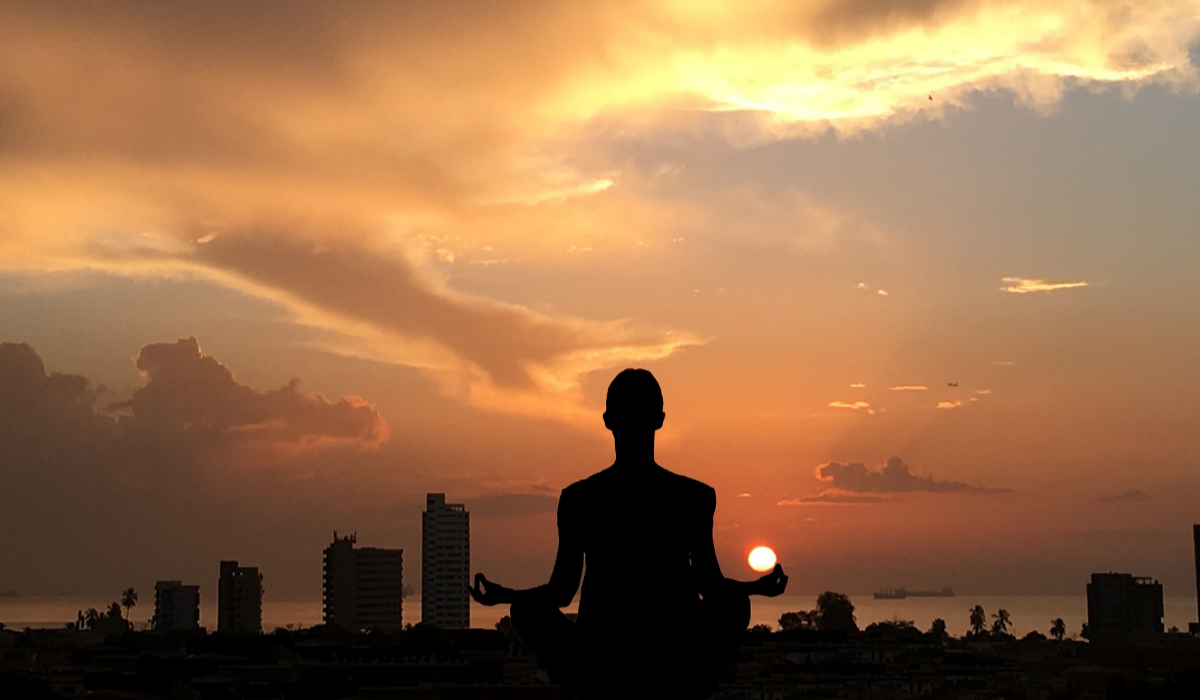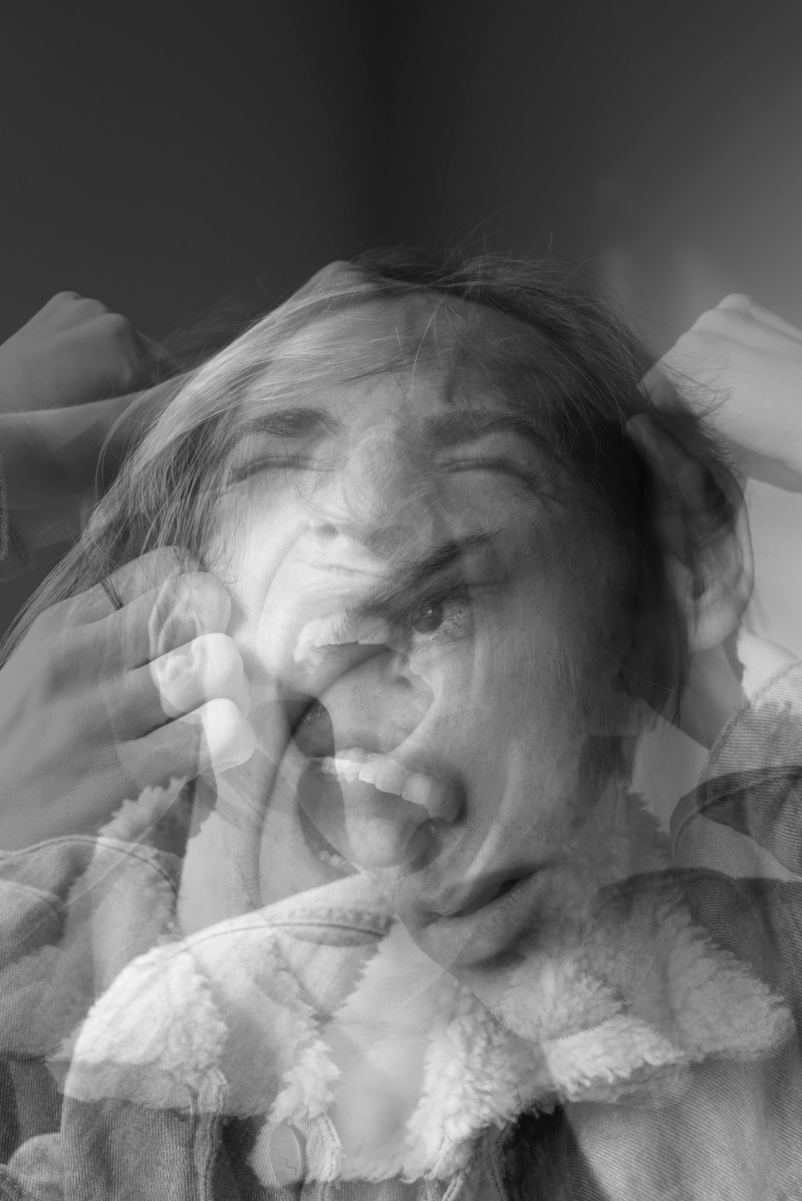What is the Secret to Choosing a Therapist?
Therapy is not one-size-fits-all. Finding a therapist is more nuanced than selecting someone from a list. It’s a deeply personal decision that...
6 min read
 KD Holmes, MS, LPC & Tyler LaFleur RN, BSN, CPT, CEP, CFMP, MLAS
:
Sep 1, 2025 1:35:05 PM
KD Holmes, MS, LPC & Tyler LaFleur RN, BSN, CPT, CEP, CFMP, MLAS
:
Sep 1, 2025 1:35:05 PM

Conventionally, most people understand how the body operates: the brain acts as the central processor, generating commands that travel through the nervous system to move muscles or signal glands to release hormones. This process highlights the mind and body connection and mental health, showing how thoughts, emotions, and physiological responses are deeply intertwined rather than operating as separate systems.
And, albeit a simple explanation, this is an extremely complicated process that occurs thousands of times per day, while most of the time, without you even thinking about it.
Well, in the therapy world, there is a break from this concept. Somehow, we must use our minds to fix our minds. There are lots of therapeutic well-known techniques focused on these concepts: cognitive challenging, and cognitive distortion; is built on this foundation. If you have a mild mental health issue, your symptoms are completely treatable in these ways. However, once you enter the more severe mental health realm like in trauma related disorders, using the mind to treat the mind becomes extremely difficult. Treating the body is essential to treating mental health issues.
One of the most overlooked and least understood concepts in the health space, currently, is the importance of meeting dietary needs of crucial vitamins.
The common mantra is: “You are what you eat.”
Yet, that is not entirely true. Technically, you are what you digest, absorb, and utilize or assimilate.
Our absorption of macro and micronutrients (try IV therapy which can even resolve symptoms for things like depression or ptsd.) depends heavily on the overall quality and source, but also on how healthy our digestive systems are operating.
Usually, people with depression, anxiety, or other mental histories notoriously have subjective digestive symptoms or issues, or they have lab tests run to show gut dysfunction or dysbiosis with their microbiome.
With impaired digestion comes impaired absorption. The problem presents itself when people are unable to fully digest and absorb the full nutrient potential of the food they are eating.
If they are already eating low quality food, obviously this will present itself more quickly. Yet, even when taking the time to search for and purchase higher quality meals, some people still lack adequate levels of nutrients and vitamins in their diets.
While there are lab tests that can be run to assess micronutrient and vitamin deficiencies, people can also simply supplement with a few key nutrients to start and assess how they feel after a few days or weeks while trying to cover the most common deficiencies.
Also known as “the second brain”, the gut is a commonly misunderstood area of mental health that is not targeted by conventional medicine as much as it should be.
Given the two-way street that connects the brain and the gut, (also known as the Vagus nerve via the Autonomic nervous system), mental stress and gut stress walk hand in hand throughout the day.
Over 90% of the vagus nerve signaling is from the gut to the brain, (also known as afferent signaling).
This is why some people have to rush to the restroom when nervous or vomit prior to going on stage. This is a direct result of the mind controlling the gut.
But what people sometimes overlook is how much influence the gut has over the mind.
This is why it is so important to eat and manage lifestyle factors that aid in decreasing intestinal inflammation as well as focus on balancing the microbiome.
A trauma history has a profound effect on mental health issues because the nervous system is "stuck" on high alert to protect you. Your body does not know that the threat has ended when the trauma ended.
Common trauma symptoms: A heightened startle response, anxiety, nightmares, problems sleeping, problems relaxing, intrusive thoughts or images about the trauma or feeling emotions associated with the traumatic event.
This one is essential for building a solid mental health foundation. Sleep is highly underrated and may be the most important thing to treat.
In regard to feeling the improvements and benefits of exercise on mental health… if you know, you KNOW!
The scientific evidence continues to stack up for the benefits of exercise on mood and well-being.
While we could use several hundred words to describe these benefits, there is no reason to reinvent the wheel as this video below does an excellent job of aggregating and explaining the benefits and evidence:
https://www.foundmyfitness.com/episodes/exercise-depression
The one nugget of advice we will add is that it is important to keep in mind that exercise is indeed a stressor.
While stressors are meant to push the body and mind beyond its norm, they both will need time and proper foundational healing environments to recover and bounce back stronger. Without those, exercise may stack on more stress and increase cortisol (along with other stress hormones) thus exacerbating symptoms.
Make sure to focus on your recovery from exercise (i.e. good nutrition, sleep, and adequate time between hard workouts) as much as you are focusing on the actual exercise itself.
This point is essential for all you overachievers who just keep adding more and more healthy, yet stressful, activities to your plates and think more is better; but it is not!!!
Recovery is the last piece of this mental health loop that most people often fail to close.
There is also an important distinction between quality sleep and simply being “unconscious” for the night.
Drinking too much alcohol and taking sleeping medication can make us feel as though we fall asleep faster, but both impede quality sleep and adequate sleep cycles throughout the night, thus delaying or blocking adequate recovery.
Of all the healthy habits, that one can partake in, focusing on sleep is by far the most important.
You can take the most expensive and high-quality vitamins, become a professional marathoner, and have the gut health of an indigenous African tribesman, but if you are not sleeping adequately, you will never reap the benefits of these actions.
Sleep is that important.
If you find that you are having trouble falling asleep, or that you are waking up in the middle of the night and are not able to fall back asleep, you may want to look into having a diurnal salivary hormone test performed with a functional medicine doctor to assess your HPA axis, and adrenal health.
If you have removed that as a problem, try incorporating the habits below to see if you can start influencing your sleep quality in a better direction:
Meditation has many benefits on the body. There are guided meditations, mindfulness meditations, and breathing meditations just to name a few.
Habits (good or bad) have an enormous impact on our mental health. We are the sum total of our daily habits. Which internal and external habits are driving you?
I love educating people about compulsive behaviors. These are any internal or external habits that we do on repeat to relieve anxiety but when done compulsively it relieves and creates more anxiety. The brain will go to that compulsive behavior to cope with anxiety but then if not done, it creates more anxiety.
Some compulsive behaviors:
Basically, if you want to lower your anxiety, abstain from compulsive behaviors and you will have less anxiety. Anxiety is the lock, and compulsive behavior is the key. The beauty is that once you stop the compulsive behavior, the anxiety lessons. It's like scratching an itch. Once you scratch, it itches more. So, STOPPING is essential.
So basically, when treating your mind, please remember: your head is attached to your body and therefore vitamins, gut health, exercise, sleep, meditation, and healthy habits have a powerful effect on your state of mind.
And sometimes figuring it all out is overwhelming. In that case, HPHI.life provides expert functional medicine guidance and KD Holmes, LPC and Associates provide expert therapeutic support including trauma processing. You can always use both of us to get the most comprehensive support.

Therapy is not one-size-fits-all. Finding a therapist is more nuanced than selecting someone from a list. It’s a deeply personal decision that...

What is trauma? Many people unknowingly live with what I often call “trauma brain.” It’s an invisible force shaping their reactions, emotions, and...

Many people are curious what is counseling? I begin by trying to understand someone’s struggles, I often come back to one question: What is it like...